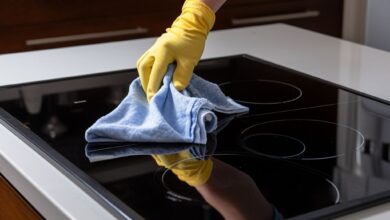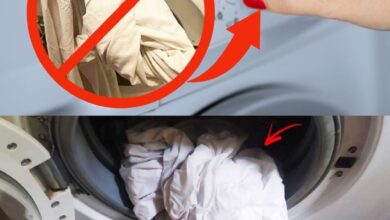Here’s why it’s “forbidden” to heat water in the microwave

Microwaves have become a staple in modern kitchens, offering convenience and speed. However, there are certain risks associated with using them, particularly when it comes to heating water. This article explores why it’s not advisable to heat water in the microwave and provides tips for safe usage.
ADVERTISEMENT
The Risks of Heating Water in the Microwave
The Explosive Nature of Microwaves and Water
Microwaves work by causing water molecules to vibrate, generating heat. When water is heated in the microwave, it can reach boiling temperatures rapidly, leading to the formation of steam. However, if not handled properly, this steam can build up pressure and cause an explosion.
ADVERTISEMENT
Risks Associated with Microwave Usage
Aside from the potential for explosions, microwaves pose other risks when heating water. Improperly sealed containers can cause hot water to spill, resulting in burns. Additionally, heating water for too long can lead to superheating, where the water appears calm but erupts violently when disturbed.
ADVERTISEMENT
Tips for Safely Using Microwaves
Adding Sugar or a Stirrer to Water
To prevent water from superheating, it’s recommended to add a few grains of sugar or a stirrer before heating it in the microwave. These additives create nucleation sites, allowing bubbles to form and preventing superheating.
Coffee Grounds as a Protective Measure
For coffee lovers, adding ground coffee to water can serve as an additional safety measure. The particles in the coffee grounds provide nucleation sites, reducing the risk of superheating and potential explosions.
Items to Avoid Heating in the Microwave
1. Metal
Metal objects should never be placed inside a microwave, as they can cause sparks and damage to the appliance. This includes aluminum foil, utensils, and containers with metallic accents.
2. Raw Peppers
Raw peppers contain capsaicin, a compound that can become airborne when heated in the microwave, leading to irritation of the eyes, nose, and throat. It’s best to avoid heating raw peppers in the microwave.
3. Eggs
Attempting to cook whole eggs in the microwave can result in explosive consequences. The pressure buildup within the egg can cause it to burst, making a mess and potentially damaging the microwave.
4. Frozen Proteins
When thawing frozen proteins in the microwave, it’s essential to ensure thorough cooking afterward. Partially cooked proteins can harbor bacteria, increasing the risk of foodborne illness.
While microwaves offer convenience in the kitchen, it’s essential to use them safely and responsibly. By understanding the risks associated with heating water and other items in the microwave, individuals can avoid accidents and enjoy the benefits of this modern appliance.
Testimony from our faithful reader, Léa:
“I tried it with the egg… Result, an explosion worthy of fireworks and an evening spent cleaning up. Thank you for this advice, I won’t make this mistake again! And for those reading: take the time to boil your water the old fashioned way or follow these tips to avoid mine!”




